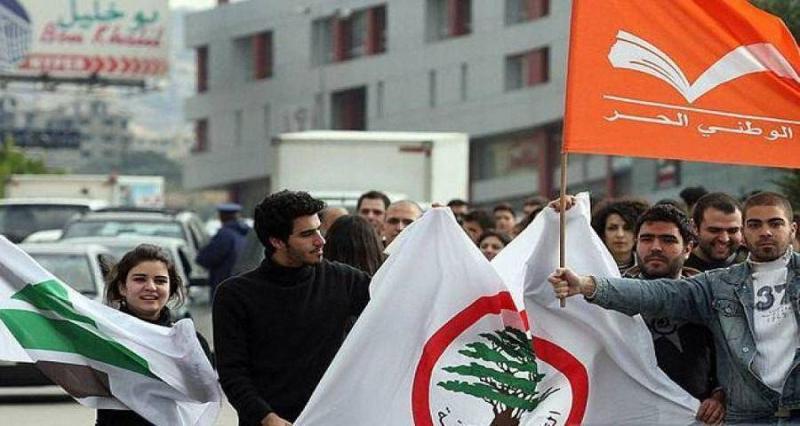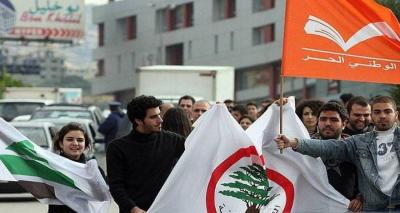The results of the parliamentary elections have compelled sovereign forces, particularly the "Lebanese Forces" and "Kataeb" parties, to overcome past disagreements and work within a sovereign project that reflects the aspirations of the Lebanese people who entrusted them and brought them to the parliament with significant blocs. Both parties acknowledge that critical entitlements necessitate overcoming differences and cooperating within a "national sovereign front capable of confronting the Persian project in Lebanon."
Prior to the call for binding parliamentary consultations to appoint a new prime minister and start the formation process, the two parties exchanged friendly messages to lay the groundwork for joint parliamentary and political cooperation. Member of the "Strong Republic" bloc (Lebanese Forces), MP Ghias Yazeebak, emphasized the need to "overcome the bickering and criticisms imposed by past events and to establish a different phase." He stated to "Asharq Al-Awsat" that Lebanon "is going through a pivotal and highly dangerous phase that threatens all the achievements of the Lebanese people's revolution and all the sacrifices made by the (Forces) and (Kataeb) parties throughout their struggle."
He remarked, "Our hands are extended to our colleagues, the Kataeb MPs, and we were betting before the elections on forming a sovereign front that would lead to an electoral alliance benefiting both parties. Now that the elections are behind us, our hearts are open and our hands are extended to work on building a sovereign front that addresses political, developmental, and security issues within a joint project to save the country."
The political divergence between "Kataeb" and "Lebanese Forces" began with the presidential settlement and the Maarab agreement in early 2016, when Forces' President Dr. Samir Geagea announced his support for General Michel Aoun's presidential candidacy. The split between them occurred after the Beirut port explosion on August 4, 2020, with Kataeb MPs resigning from parliament while the Forces MPs refrained from resigning. However, the challenges facing both parties push them to move beyond the past. MP Selim Al-Sayegh from the Kataeb bloc expressed his regret that "while Hezbollah is forming maximum coalitions, we, as opposition forces, are achieving minimum alliances, and between these two extremes are vast margins."
He stated to "Asharq Al-Awsat" that "the Kataeb Party has made a clear political decision to build on the election results and seek to gather the largest number of active forces in the parliament to preserve Lebanon's identity and prevent the takeover of its resources." Both teams leverage the influence of anti-dual Shiite alliance voices ("Amal Movement" and "Hezbollah") and "the Free Patriotic Movement," which asserted themselves in the parliamentary elections that took place last Tuesday. Al-Sayegh affirmed that "just as the Kataeb Party and the Lebanese Forces were in the same position regarding the election of the Speaker and his Deputy, we have decided to cooperate with everyone, with (Forces) likely leading when it comes to Lebanon's sovereignty, and we will also stand with change forces when it concerns reforms." He added, "We can serve as a link between all parties, thanks to our ability to communicate with everyone."
It is true that the opposition failed to elect its candidate for Deputy Speaker of Parliament, but it broke the ice that had characterized their relationship in recent years. MP Ghias Yazeebak acknowledged the existence of "communication and harmony with Kataeb MPs during the election session for the Speaker of Parliament and his Deputy, and we hope this will lay the foundation for cooperation on urgent and critical challenges, the most important of which are the election of parliamentary committees, forming the upcoming government, and electing a new president, while confronting the Persian project."
He added, "We must confront Iran's attempts to tighten its grip on Lebanon and be worthy of the trust the people have placed in us, uniting within a sovereign team rather than turning into conflicting oppositions. Our project must remain national, proving that we are a majority capable of change through elevated national work, able to face Hezbollah's project." He considers "any action contrary to these principles a blatant coup against the popular mandate that has relied on our sovereign project aimed at restoring national sovereignty."
The sovereign forces have defined their priorities to launch their parliamentary and legislative work. MP Selim Al-Sayegh pointed out "the importance of cooperation in the upcoming phase, and that there should be a unified perspective in dealing with the formation of the government and the presidential elections." He observed that "it is no longer permissible to scatter the forces that are connected by core issues affecting Lebanon's fate and the future of its children," noting a crucial point that "the majority in the parliament has become dynamic, making the current parliament balanced and preventing Hezbollah's monopolization and attempts to seize control of the country."
Al-Sayegh continued, "We do not impose our project on anyone, but the Lebanese people expect from us, the Lebanese Forces, and the change bloc, a rescue project that satisfies them and Lebanon’s brothers and friends." He concluded by stating, "We will not accept taking the country back into the traditional game, rather the interests of the people and the nation must prevail over all factional and partisan interests."




